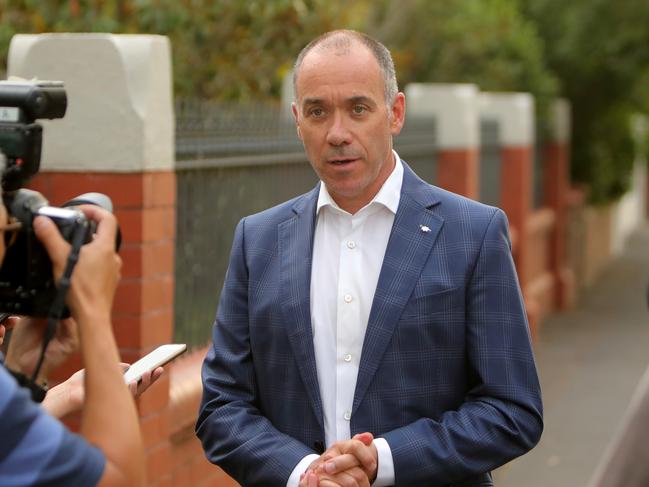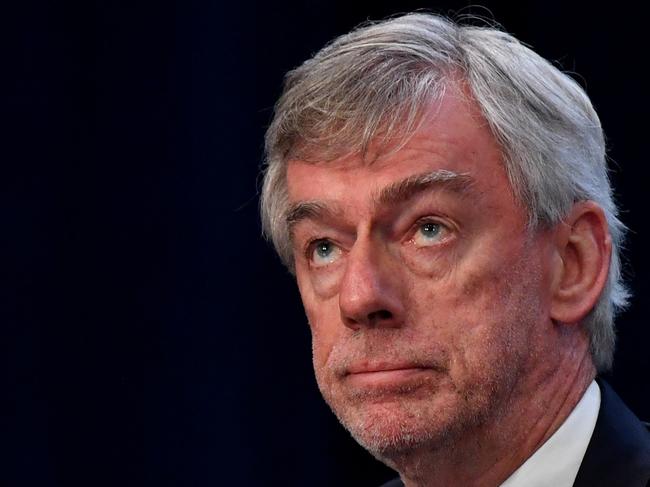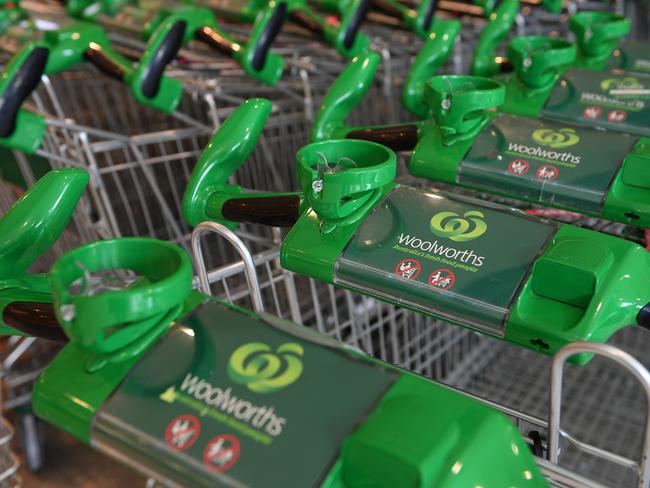Financial woes: Business scandals that shocked Australia
Heads rolled, bosses were caught red-handed underpaying staff and the banks had nothing short of an annus horribilis. These are the scandals that up-ended the business world in 2019.
Money
Don't miss out on the headlines from Money. Followed categories will be added to My News.
Scandals continued to plague the business world in 2019 which saw heads roll and institutions left wounded by billions of dollars in fines.
It was nothing short of an annus horribilis for the banks.
Businesses were caught red-handed underpaying staff in wages, overtime and superannuation and the retail sector was also hit hard.
Many well-known brands fell by the wayside and were forced to close their doors after they were no longer financially viable.

But on the flip side it was a great year for borrowers who have lapped up record-low interest rates and investors who have revelled in a bullish stock market.
And since the re-election of the Coalition Government, Federal Treasurer Josh Frydenberg has remained determined to return the budget to surplus this financial year despite a sluggish economy.
But 2019 was definitely one to forget for the nation’s big banks after Kenneth Hayne’s final report from the financial services’ royal commission declared greed as the modus operandi for these wealthy institutions.
And consequently many of banks’ top dogs were kicked to the curb including National

Australia Bank’s chief executive officer Andrew Thorburn and his boss, chairman Ken Henry.
The two were forced to quit their posts after Hayne’s commission heard explosive revelations of the NAB’s poor conduct and ineptness to grasp their widespread problems.
And just last month Westpac boss Brian Hartzer was forced out the door of the nation’s oldest bank in the wake of the latest scandal to riddle the bank.
And chairman Lindsay Maxstead also brought forward his retirement after the scandal was revealed to the first half of 2020.
The government’s financial intelligence agency, AUSTRAC, took against Westpac
who stand accused of facilitating payments to paedophiles in the Philippines.
The bank has had 23 million breaches of anti-money laundering slapped on them and could be
forced to cough up a motza as a result.

The Finance Sector Union’s assistant secretary Nathan Rees said the horrors in the Royal Commission’s aftermath including fees-for-no-service scandal and the blatant ripping off of customers had put banks in a very bad light.
“The examples that were exposed in the royal commission literally everyday have fundamentally eroded trust in the banking sector,” he said.
“They now all have a serious task in restoring trust in the broader community.”
But Mr Rees said if customers did up and leave their existing financial institution “you need to know the institution you switch to is equally safe at keeping your asset secure”.
“The big four remain safe places to keep your money but the behaviours that people are seeing is shaking their confidence in these institutions,” he said.
And businesses including supermarket giant Woolworths were also singled out for underpaying staff.
MORE NEWS
Jews attacked as anti-Semitic rampage goes global
Aussie in Iran jail begins hunger strike
The Fair Work Ombudsman has started an investigation into Woolworths’s self-disclosure and has held them to account for breaching workplace laws.
They are now facing a class-action lawsuit in the Federal Court accused of $300 million in underpayment of thousands of past and present Woolworths workers.
Woolworths admitted it had underpaid nearly 6000 staff by as much as $300 million since 2010 after a review of its latest enterprise agreement.
Fair Work Ombudsman Sandra Parker recently there was a “disturbing” number of large corporates admitting they had underpaid staff.
“These sorts of careless missteps by business can be costly, often running up into the millions of dollars across an entire workforce,” she said.

Other companies short-changing workers on their pay slips included Super Retail Group that owns Rebel Sport, Supercheap Auto and BCF, Qantas and Michael Hill.
Former MasterChef judge George Calombaris became the face of the wages scandal mid-year when his hospitality empire MAdE operations underpaid workers to the tune of $7.8 million.
The retail sector has also had many casualties, all falling victim to consumers being tighter with their spending.
More shoppers turned to online and ongoing cost pressures and an influx of international competition pushed many retailers to the brink.
Some of the well-known stores and labels to call it quits included Harris Scarfe, Bardot, Dimmeys, Debenhams, Napoleon Perdis, Karen Millen, Zanui, Shoes of Prey and Co-op Bookshop.
The Australian Retailers Association’s executive director, Russell Zimmerman, said “retailers have been under a fair amount of stress” in 2019 which resulted in some of their demise.
“It’s certainly been a very tough year and one of the toughest,” he said.
“Some retailers are doing it well and other retailers are changing rapidly to catch up and other retailers haven’t caught up and have gone by the wayside.”
Mr Zimmerman also said Brexit and the American and Chinese trade issues have impacted the confidence of consumers and their retail spend.
Originally published as Financial woes: Business scandals that shocked Australia



